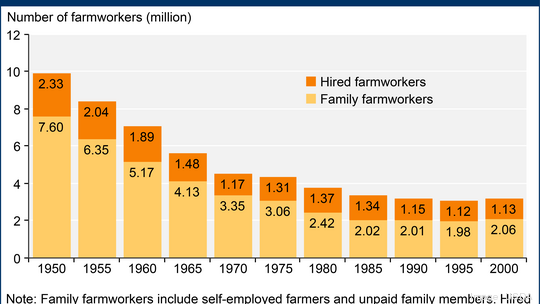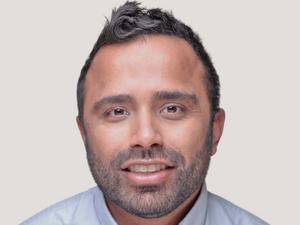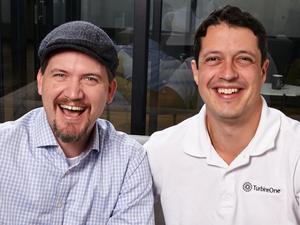
Agtonomy, a company specializing in developing software to make farm equipment autonomous, raised $5 million in seed funding to bring its total funding to $9 million. Its investors include Toyota Ventures, Flybridge, Hampton VC, E²JDJ, Momenta, GV and Grit Ventures, according to a press release.
The firm’s founder, Tim Bucher, owns a vineyard and olive ranch in Geyserville, located about an hour drive north of San Francisco, and has felt the pain of farm labor shortages. So in 2020 he co-founded Agtonomy to create autonomous solutions for farm equipment.
The South San Francisco startup is developing software and services that can be integrated into farm equipment and heavy vehicles produced by other companies, Bucher told me via email. It is also working with manufacturers on developing a new generation of electric tractors and will eventually offer what Bucher describes as farming-as-a-service.
"Agtonomy’s mission is focused on services that we feel are a necessity for addressing significant labor shortages in local agriculture, one of the biggest issues facing the segment in general and thus impacting our food source," Bucher said.
Its products include sensors and cameras for autonomous operations that can be operated remotely as needed, and while lidar can be part of the system, that particular technology is often not needed in agricultural applications, Bucher said.
Agtonomy is not disclosing its manufacturing partners yet but says it has prototypes being tested on farms around California and expects to launch paid trials in the first half of 2022.
The company is not trying to outfit Big Ag operations, though. It's targeting the needs of smaller farms.
"While most technology is focused on big agriculture, Agtonomy is making autonomous equipment accessible to local agriculture growing high-value crops and providing a technology-enabled labor force to operate that equipment," Bucher said in a statement released in September when the startup came out of stealth. "By working with established original equipment manufacturers (OEMs), we can accelerate our sustainable technology platform to market and enable services that help alleviate the most critical issues facing local farmers and land maintenance operators today and into the foreseeable future: skilled labor shortage and climate change."
The agricultural workforce has declined for decades. The number of self-employed and family farmworkers dropped 74% from 1950 to 1990, according to the USDA. Hired farmworkers also dropped 51% over that same period and have remained relatively flat at about 2 million people since 1985.

"We’re not replacing labor or eliminating jobs. We’re making local farming work better to keep everyone in business and operate in a more sustainable way," Bucher wrote in a blog post on Medium in September.
The company currently employs about 25 people, and the new funding will be used for product development, expanding its team and building out industry partnerships, according to a press release.








